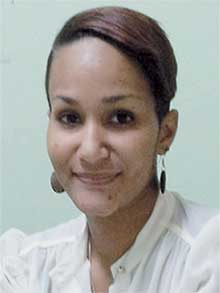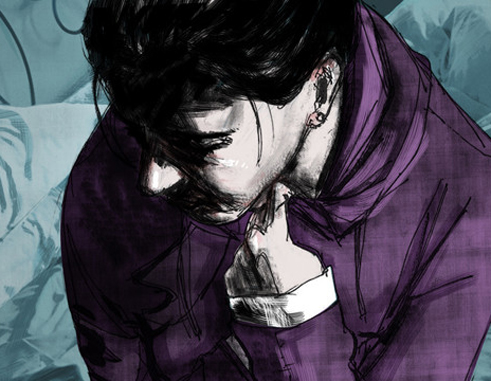HOW WE COPE – PART 2

GOOD weekend to all. We will continue with last week’s theme on how we cope using the book, ‘The Courage to Heal: A Guide for Women Survivors of Child Sexual Abuse by Ellen Bass & Laura Davis as the guide for this article. Last week we talked a bit about how we cope, learning to acknowledge the ways we cope and accepting which ones are healthy and which we should focus on replacing with healthier coping mechanisms. In this week’s article we will continue to look at a few more of the ways in which we as survivors of one thing or another cope. I will continue to reiterate that your coping mechanisms are not to be ashamed of.
Be proud that every day you choose to fight to survive, that you choose to do what was necessary not to give up. Your coping mechanisms were born out of a need for you to protect yourself. The trauma you were experiencing was too much and your mind and body chose to find a way to help protect you, to help you continue to get through each day. For each of us, coping will look different; the tools we use to aid in helping us cope will be different. So throughout this, don’t compare yourself to anyone. Know that regardless of how similar your traumas are that we all react and deal differently at different times on the journey to reconnecting with ourselves. What follows below may impact you in one way or another, or bring back unwanted, unpleasant memories which may make it difficult to read the entire article. If you feel Triggered at any point put the article down, there is no need to force yourself. Always trust your feelings; there is no need to push yourself to read the entire article, or to read the entire article in one sitting. Take your time, baby Steps.
While PROSAF deals primarily with survivors/victims/thrivers/(insert your own descriptive word) of sexual violence, we are very aware that experiencing trauma is something that we are all familiar with to some degree. Don’t believe for one moment, that trauma is reserved for only those who live through a specific kind of encounter. Don’t compare your traumatic experience to anyone else’s and don’t minimise your pain or compare it to anyone else’s. Everything that happens will be unique to you, from your view of the experience to how you cope, to how and when you begin healing. Comparing yourself with anyone else will not make it easier, we are never walking the exact same path as anyone else. Our goals are similar but everyone’s path to those goals is unique to the individual and as a result, we will be impacted by things differently. This week we will continue discussing 3 more ways in which we cope with trauma by looking at 1) forgetting, 2) presenting a facade to the world and 3) humour.
When we thinking of Forgetting as it relates to coping we mean completely blocking off the memories or experiences associated with something that has become too painful to think about. Forgetting the traumatic experience is the brains way of protecting the body, of protecting us from things that it deems we are unable to handle. At some-point the memories may resurface or partially resurface, but the body’s initial way of ensuring that you are able to get through the days that follow is to ensure that all memories associated with the traumatic event are temporarily inaccessible.
Presenting a Facade to the World as it relates to coping from trauma means that while you are aware of the traumatic experiences you are living through, what you share with the world is the complete opposite. It almost like you created a different personality that you show to the world. What you feel, what you know to be the truth of your traumatic experience you keep to yourself, what you show the world is a completely different image, one in which things are perfect, you are happy, your world is complete. With this coping mechanism, one protects themself by fending off the commentary from everyone else. You are able to protect yourselves in many ways by isolating yourself and what you are going through from everyone. You become your own rock, your only support system. This coping mechanism allows us to be honest with ourselves about what we are experiencing or have experiences but also always us to keep everyone else at s safe distance through your current inability to open up, to be vulnerable.
Humour, like presenting a facade to the world, allows you to keep your distance from others. It allows you to keep others entertained taking the spot light off what you may be going through. It allows you to create a distraction from what you are experiencing through the use of your words, your laughter, and your entertaining side. Humour allows you to maintain your relationships and privacy without alienation. As mentioned at the start of the article, the coping mechanisms discussed here don’t only relate to survivors of sexual violence, but to all of us who have experienced something traumatic and are finding it difficult to cope, to be vulnerable, and to begin healing.
Always remember that we all cope differently, that many of us have experienced something traumatic, that we have all experienced something that has caused us to feel, pain, terror, shame, anger, sadness, something that has caused our bodies and minds to react when the memories resurface, something that is causing us to lay the foundation for self-preservation. You have found a way to cope, to make it through the day. Don’t be hard on yourself for the ways in which you have chosen to cope. Being honest with yourself about where you are and what you are doing is important. Knowing what is healthy and what needs further work is a step in the right direction. We, at PROSAF, are not here to judge, or chastise anyone for the ways in which they choose to cope but instead to ask that you evaluate the ways in which you have been able to cope and decide which ones are healthy and which we need to work on to replace with healthier avenues. Try to work on figuring out what coping means to you and where you are right now. For me, coping is making it through the day; coping is ensuring that I don’t break-down. What does coping mean to you?
Next week we will look at a few more. Should there be a specific topic you would like us to cover please feel free to email or text us. If there is a specific question you would like answered again please email or text us.
Survivors of sexual assault need a supportive environment to begin the healing process. They need to believe and feel that they are part of a culture that doesn’t support individuals who commit sexual crimes. We have to be the difference we want to see in our country. We have to be willing to start to make change. We, at PROSAF, have acknowledged that violence against women is a problem in St. Lucia and the wider Caribbean. We are here to begin the metamorphosis that is desperately needed. We are always here to listen and if you are not ready to come forward but need a listening ear, feel free to contact us. Remember that Sexual assault is something that happens to people, it does not define them, and it is something that was done to them. Survivors, Victims, Thrivers remember you are a strong, beautiful, intelligent woman/child/man who has suffered a trauma through no fault of your own. You are not guilty of any crime, something was done to you against your will Sexual Assault is something that happened to you, and it does not define you. You are worthy of love and happiness. Always remember that you are not alone, that you have nothing to be ashamed of. We are taking the baby steps necessary to make it better for all. KNOW YOU HAVE A SAFE SPACE IN PROSAF. If you are interested in finding out more information about sexual violence and what you can do as part of this community, please feel free to contact us at:
Yours Sincerely,
Souyenne Dathorne, Velika Lawrence
Email: [email protected] – [email protected]
Facebook: SURVIVING SEXUAL ABUSE IN THE CARIBBEAN: https://www.facebook.com/pages/PROSAF-Surviving-Sexual-Abuse-in-the-Caribbean/165341356853908
Webpage: http://www.prosaf.org (Under construction)
Telephone: 1-758-724-9991(sue) 1-758-723-6466(vel)






